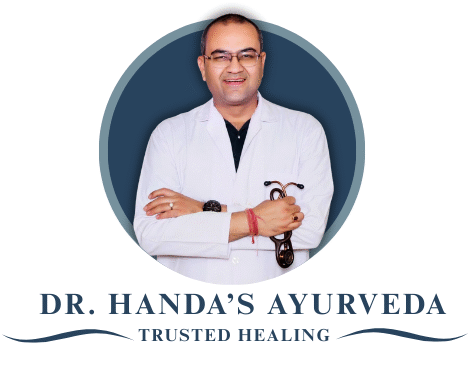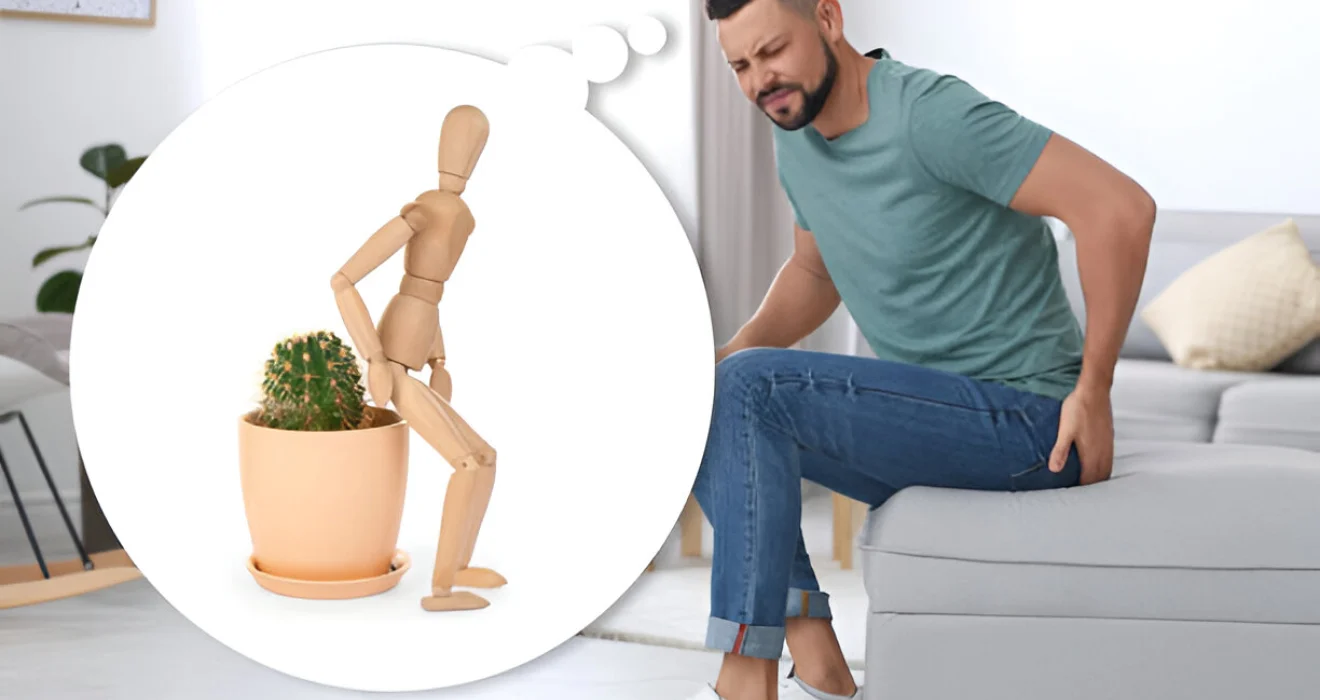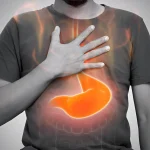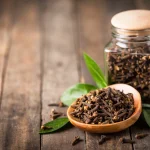Piles Symptoms, Causes, Precautions and Ayurvedic Treatment
Piles, also known as hemorrhoids, are swollen and inflamed veins located in the rectum and anus. They can develop internally within the rectum or externally under the skin around the anus. Piles can cause discomfort, pain, itching, and bleeding during bowel movements. Factors such as straining during bowel movements, chronic constipation or diarrhea, a low-fiber diet, obesity, pregnancy, and prolonged sitting can contribute to their development. Piles are a common condition, particularly among older adults, and can vary in severity from mild to severe, sometimes requiring medical treatment or surgical intervention.
Table of Contents
ToggleSymptoms of Piles
- Bleeding: One of the most common symptoms, particularly with internal hemorrhoids, is bright red blood on toilet paper, in the toilet bowl,
- Itching or irritation may be felt around anus.
- Pain or discomfort can occur around the anal area, especially during bowel movements or when sitting.
- Swelling may be noticeable around the anus. This is more common with external hemorrhoids.
- A lump near the anus can be felt when a hemorrhoid has prolapsed, which means it is protruding outside the anus.
- Mucus discharge from the anus may be fely by some people, which can cause further irritation and itching.
- Feeling of incomplete evacuation may be felt even after having a bowel movement
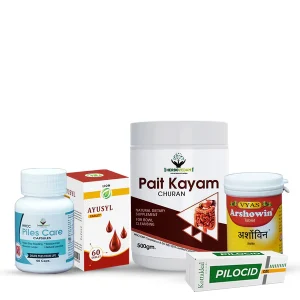
100% Pure Ayurvedic "Piles Care Kit"
Causes
Piles, or hemorrhoids, can develop due to various factors that increase pressure in the lower rectum. Here are the primary causes:
- Straining during bowel movements: Excessive straining can cause veins in the rectum and anus to swell, leading to piles. This is often associated with chronic constipation or hard stools.
- Chronic constipation or diarrhea: Both conditions can lead to straining and prolonged sitting on the toilet, which increase the risk of developing piles.
- Low-fiber diet: A diet low in fiber can lead to hard stools and constipation, increasing the likelihood of straining during bowel movements.
- Obesity: Excess body weight can put additional pressure on the veins in the rectal and anal area, contributing to the formation of piles.
- Pregnancy: The increased pressure from the growing uterus, hormonal changes, and increased blood volume during pregnancy can cause veins in the rectal area to enlarge and swell, leading to piles.
- Prolonged sitting: Sitting for extended periods, especially on the toilet, can increase pressure on the veins in the anus and rectum, contributing to piles.
- Heavy lifting: Regularly lifting heavy objects can increase abdominal pressure, which in turn can cause veins in the rectum and anus to swell.
- Aging: As people age, the tissues supporting the veins in the rectum and anus can weaken and stretch, making piles more likely.
- Genetics: A family history of hemorrhoids can increase the likelihood of developing the condition due to inherited weaknesses in vein walls or rectal tissue.
Precautions to take
- Increase Fiber Intake that includes fruits, vegetables, whole grains, and legumes. Fiber softens stool and increases its bulk, reducing straining during bowel movements.
- Stay Hydrated & Drink plenty of water throughout the day to help prevent constipation and make stools easier to pass.
- Avoid straining during bowel movements, as this increases pressure on the veins in the rectum and anus.
- Engage in regular physical activity to help maintain bowel regularity and reduce pressure on the veins.
- Use the Bathroom When Needed. Don’t delay bowel movements. When you feel the urge, go to the bathroom immediately to prevent stool from becoming dry and hard.
- Limit Sitting Time, especially on the toilet. If your job requires long periods of sitting, take regular breaks to stand up and move around.
- Practice Good Hygiene, keep the anal area clean. Use gentle, moist towelettes or soft toilet paper to wipe, and avoid rubbing too hard.
- Soak in a warm bath for 10 to 15 minutes several times a day to relieve pain and discomfort.
- Avoid Heavy Lifting and, if necessary, use proper lifting techniques to reduce strain on the abdominal and rectal areas.
- Use over-the-counter creams, ointments, or suppositories to relieve pain, itching, and swelling. Products containing hydrocortisone can be particularly effective.
- Wear Loose Clothing, Opt for loose, breathable clothing and cotton underwear to reduce irritation and moisture buildup.
- Elevate Feet During Bowel Movements Using a small stool while sitting on the toilet can help change the angle of the rectum and make bowel movements easier.
Best Ayurveda Treatment for piles
Ashoka (Saraca asoca):
Anti-inflammatory Properties, Astringent Properties, Pain Relief, Strengthen Veins
Nagkesar (Ceylon ironwood):
Hemostatic Properties, Improves Digestion, Pain Relief, Astringent Action, Anti-inflammatory Properties.
Kamboji (Breynia patens):
Laxative Properties, Anti-inflammatory Effects, Astringent Action, Antimicrobial Properties
Jiwanti (Leptadenia reticulata):
Improves Digestive Health, Anti-inflammatory Properties, Astringent Action, Contains Rejuvenative and Healing Effects
Gorakhmundi (Sphaeranthus indicus):
Antioxidant Effects, Astringent Action, Anti-inflammatory Properties
Neem (Neem Fruit Seeds):
Anti-inflammatory Properties, Antibacterial and Antimicrobial Effects, Astringent Action
Guggul (Commiphora mukul):
Guggul has anti-inflammatory properties and is often used in Ayurvedic formulations to reduce swelling and pain associated with piles.
Kshara Sutra Therapy:
A specialized Ayurvedic procedure for treating piles, Kshara Sutra involves the application of a medicated thread to the hemorrhoid, which gradually cuts off blood supply, leading to its shrinkage and eventual falling off.
Haritaki (Terminalia chebula):
Known for its laxative properties, Haritaki helps soften stools and promotes regular bowel movements, reducing straining and pressure on hemorrhoids.
Aloe Vera:
Applying Aloe Vera gel directly to the affected area can soothe inflammation and reduce discomfort. It has anti-inflammatory and healing properties that are beneficial for piles.
When Piles becomes dangerous?
Piles, also known as hemorrhoids, usually aren’t life-threatening, but they can cause serious discomfort and problems in certain situations. Here are some reasons why piles can be dangerous and when you should seek medical help:
- Severe Bleeding: Piles can bleed, especially during bowel movements. While a little bleeding is common, if you have a lot of bleeding or it doesn’t stop, it can lead to anemia (low red blood cells). This might need medical treatment to stop the bleeding.
- Thrombosis: External hemorrhoids can get blood clots inside them, called thrombosed hemorrhoids. This can cause intense pain and swelling in the area around your bottom. Sometimes, this needs medical treatment, like draining the clot, especially if other treatments don’t help.
- Prolapse and Incarceration: Prolapsed hemorrhoids happen when internal hemorrhoids stick out of your bottom and can’t be pushed back inside. If a prolapsed hemorrhoid gets stuck outside your bottom (incarceration), it can cause a lot of pain and might need medical attention to fix it.
- Infection: Hemorrhoids can get infected, which can make them hurt more, swell, get red, and sometimes have pus coming out. Infected hemorrhoids need medical treatment with antibiotics or other procedures to drain the infection.
- Chronic Pain and Discomfort: If you have ongoing pain, itching, or discomfort even after trying home treatments, it can affect your daily life. Chronic symptoms can lead to feelings of anxiety or depression and might need medical evaluation and treatment.
- Complications from Treatment: Sometimes, treatments for hemorrhoids like injections or surgery can cause problems like infection, bleeding, or the hemorrhoids coming back.
- Other Health Problems: Sometimes, hemorrhoids can be a sign of other health issues like colorectal cancer or inflammatory bowel disease (IBD). If you have ongoing symptoms, severe pain, or other changes like weight loss or new bowel problems, it’s important to see a doctor to check for these conditions.
Conclusion
In summary, piles, also known as hemorrhoids, involve understanding the signs, causes, and precautions to prevent them. Ayurvedic treatments can help manage symptoms effectively. It’s important to recognize when piles can be serious, like severe bleeding or ongoing discomfort, which requires medical attention. By staying informed, taking preventive steps, and seeking timely treatment, individuals can better manage piles and maintain their health and well-being.
